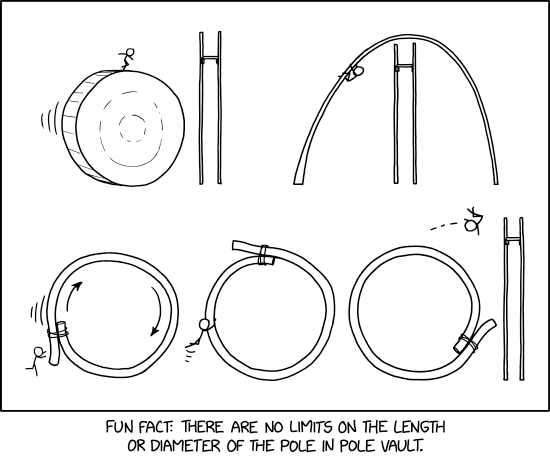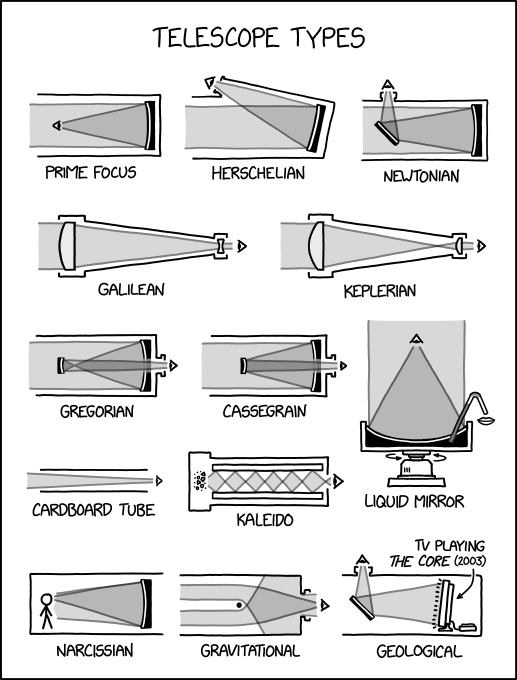The most disturbing part of
A View from a Hill (2005) is the beauty of Fulnaker Abbey. From a dry slump of stones in a frost-crunched field, it soars in a flamboyance of turrets and spires, a dust-gilded nave whose frescoes have not glowed in the wan autumn sun, whose biscuit-colored fluting has not been touched since the dissolution of the monasteries. His customarily tight face equally transfigured, Dr. Fanshawe (Mark Letheren) turns in wonder through the rose windows of this archaeological resurrection, a ruin to the naked, post-war eye, through the antique field glasses which first showed him the distant, fogged, impossible prospect of its tower in a chill of hedgerows and mist, medievally alive. In a teleplay of sinister twig-snaps and the carrion-wheel of kites, it's a moment of golden, murmuring awe, centuries blown like dandelion clocks in a numinous blaze. It is a product of black magic only a little more grimily direct than most reconstructions of the past through a lens of bone and it would be far more comforting as a lie.
Visible in appropriate hindsight as the first in the irregular revival of
A Ghost Story for Christmas (1971–78),
A View from a Hill was adapted for the small screen by Peter Harness and faithfully preserves the antiquarian creep of its source M. R. James while remixing much of the detail around its central conceit, its adjustments of period and tweaks of class taking the story from an eerie sketch of the skull beneath English pastoral skin to an explicit meditation on the double edges of disinterring the past, specifically who decides what the transcendence of time is worth and who foots the bill. It can be mistaken for a purely material question. Aristocratically cash-strapped and as tone-deaf to transcendence as to manners, Squire Richards (Pip Torrens) would be the first to admit he's only called in an old school favor from the Fitzwilliam because his inheritance of antiquities might have something in it to bail out the stately crumbling home. "Never really my thing, standing in a field, grubbing about in the past. One wants to get oneself out there, don't you think? Get a bit of life." Fortunately for that piece of breathtaking tactlessness, Fanshawe came prepared to be condescended to, his archaeological credentials carefully organized to offset his grammar-school accents and implicitly junior standing, packed off to the countryside to investigate a miscellany of Crimean souvenirs and unremarkable Roman ware. He was not braced to discover a double of sorts in the amateur figure of F. D. Baxter (Simon Linnell), the village antiquary still remembered suspiciously for the macabre chime of his death with the obsessions which preceded it. "Fancied himself an archaeologist, like yourself . . . Used to be very bothered with ransacking and rummaging all the history of the place." To be classed with a half-educated watchmaker predictably flicks his defenses, but Fanshawe seems nevertheless to feel some sympathy for this ill-reputed character whose notes led unerringly to worthwhile finds—the kind of professional half-life he might have had to settle for himself, a pre-war stratified generation or two ago. Besides, Baxter was just as transfixed by that mysterious apparition of an abbey, judging from the beautiful, precisely drawn elevation that Fanshawe finds among his papers, complete in every corbel and tracery and dated to 1926 when the squire and the less eccentric evidence of his senses assure him that nothing remains but the cold little scatter of stones that he cycles out to inspect by the rime-glint of afternoon, looking as he paces the dimensions of its absence in his fallow windbreaker and the overcast of his own breath at once tougher and more contemplative, on his own ground for once instead of the back foot of his diligent, tiresome job. His fingers move over a half-buried, moss-crisped stone as if its lost architecture were held like amber within it. Even an inexplicable wave of panic after a puncture at the wooded top of the locally named Gallows Hill can't dim his fascination with the site and the brass-bound binoculars which seem to pierce time to show him more than any survey or excavation or illustration ever could, the past itself, not its denuded, disarticulated remains.
Reflections from the Dead: An Archaeological Journey into the Dark Ages, reads the title of the manuscript he brought to edit in his spare time. He looked, too, through the eyes of that curious, earth-browned skull-mask that came, like the binoculars, out of Baxter's collection: "Some of it is pretty bizarre." Of course, there all his troubles began.
James reserves this fact for the punch line of "
A View from a Hill" (1925), the ickily logical explanation for the optical disillusion by which placid scenery may become a deep-soaked site of violence. The teleplay drops it square in the middle of its 40 minutes, a night-flashed miniature of folk horror narrated by the aged, watchful manservant Patten (David Burke) with masterful suggestion. "My father served on the inquest. They returned a verdict of unsound mind." Frustrated with the human limits of fieldwork and too much alone with the tools of his trade, Baxter is locally averred to have taught himself as much necromancy as archaeology when he rendered the bones of the dead of Gallows Hill in order to paint the lenses of his field glasses into ghost-sight, an optical coating of the unlaid past. His rain-caped figure sketching on an autumnal hillside would be a study in the picturesque except for the feverish avidity of drawing a dead building from life, the success of his spectral optics which merely conceal the grisliness of their cruder predecessor, the freshly unearthed front of a skull. Harness does not have him cry as in the original story, "Do you want to look through a dead man's eyes?" but visualizes the line until we wonder even whether it accounts for the accuracy of the unexcavated sites left behind in his notes, a sort of ground-penetrating radar of the dead. Or he had a real feel for the tracks of time in the land, for all the good it eventually did him: "What," the squire greets the payoff with meta-modern skepticism, obviously not the target audience for antiquarian ghost stories, "the hanged men came for Baxter because they didn't like their bones being boiled?" Fanshawe for whose benefit this ghoulish moral was actually exhumed doesn't commit himself that far. "It's an interesting story." Relocating it complicates him as a protagonist, but not beyond what either Jamesian canon or extra-diegetic relevance will bear. By the time he brings the binoculars back to the sun-whitened field where the abbey waits under its accretion of centuries, he knows too much to be doing it. Not only has he heard the story of their ill-fated creation, he's seen the drawings that support it, even experienced a dreamlike encounter in the bathroom of all places where the water swirled as cloudily as leached bone and the face flickering like a bad film behind its skull's visor belonged to a pale and crow-picked Baxter. As if their stolen second sight were as much of a beacon as the torch he flashed wildly around in the restless dusk, Patten attributed his terrifying sense of woodland surveillance to his possession of "those glasses." It makes any idea of using them feel intolerably foolhardy of Fanshawe, but more importantly it makes him complicit. Despite its cadaverous viewing conditions, Fulnaker Abbey is not an inherently cursed or haunted space: its eeriness lies in its parallax of time, the reality of its stalls and tapers in the twelfth century as much as its weather-gnawed foundations in the twentieth in one of those simultaneities that so trouble the tranquil illusion of a present. To anyone with a care for the fragility of history, especially a keen and vulnerable medievalist like Fanshawe, its opening into the same three mundane dimensions as a contemporary church is a miracle. For the first time as it assembles itself through the resolving blur of the binoculars, we hear him laugh in unguarded delight. None of its consecrated grandeur is accessible without the desecration of much less sanctified bodies, the poachers and other criminals who fed the vanished gibbet of Gallows Hill and were planted thick around it as the trees that hid their graves over the years until a clever watchmaker decided that their peaceful rest mattered less than the knowledge that could be extracted from their decayed state. It happened to generate a haunting—a pocket timeslip constructed without the consent of the dead who would power it, everyone's just lucky they stayed quiescent until attracted by the use of the device again—but it would not have been less exploitative had Baxter done his grave-robbing and corpse-boiling with supernatural impunity. No matter how gorgeous the temporally split vision from which Fanshawe begins to draft his own interior views, it's a validation of that gruesome disrespect and it's no wonder the dead lose no time doing him the same honors as the man who bound them to enable it.
Directed by Luke Watson for BBC Four,
A View from a Hill is inevitably its own artifact of past time. The crucial, permeable landscape—Herefordshire in the original, the BBC could afford the Thames Valley—is capably photographed at a time of year that does most of its own desaturation and DP Chris Goodger takes visible care to work with the uncanniness of absence and daylight, but the prevalence of handheld fast cutting risks the conscious homage of the mood and the digital texture is slicker than 16 mm even without the stuttering crash zoom that ends in a superfluous jump scare; it does better with small reminders of disquiet like a red kite hovering for something to scavenge or the sketch of a burial that looks like a dance macabre. The score by Andy Price and Harry Escott comes out at moments of thinned time and otherwise leaves the soundscape to the cries and rustles of the natural world and the dry hollow of breath that denotes the presence of the dead. Fulnaker Abbey was confected from select views of the neo-Gothic St Michael's in Farnborough and Fanshawe's doctoral thesis sampled ironically from a passage of Philip Rahtz:
The gravestones are indeed documents in stone, and we do not need to excavate them, except perhaps to uncover parts of the inscription that have become overgrown or buried . . . As a three-and-a-half-hander, the teleplay shines. Letheren's mix of prickliness and earnestness makes him an effective and unusual anchor for its warning to the heedless; even if that final explosion of wings in the brush is as natural as it sounds, Fanshawe will never again take for granted a truly dead past, nor his own right to pick through it as though it had no say in the matter. Taciturn except when essentially summarizing the original James, Burke avoids infodump through little more than the implication that Patten keeps as much to himself as he relates, while Torrens in tweed plus-fours and a total indifference to intellectual pursuits more than occasionally suggests a sort of rusticated Bertie Wooster, making his odd expression of insight or concern worth taking note of. Linnell as the fatally inventive Baxter is a shadowy cameo with a spectral chaser, but his absorbed, owlish face gives him a weird sympathy, as if it never did occur to him how far out of reason he had reached into history. "Always had some project on the go or something. And pretty much the last job he did was finishing off those glasses you took." It is characteristic of James as a troubler of landscape and smart of the teleplay not to tamper with his decision to make the danger of their use entirely homegrown. Who needs the exoticism of a mummy's curse when the hard times of old England are still buried so shallowly?
I seem to have blown the timing by watching this ghost story for the solstice rather than Christmas, but it's
readily available including on the
Internet Archive and it suited a longest night as well as somewhat unexpectedly my own
interests. I might have trimmed a few seconds of its woodland, but not its attention to the unobjectified dead. With all his acknowledged influence from James, I can't believe John Bellairs never inflicted a pair of haunted binoculars on one of his series protagonists—a dead man's likeness transferred through his stolen eyes is close but no necromantic banana. This project brought to you by my last backers at
Patreon.
![[personal profile]](https://www.dreamwidth.org/img/silk/identity/user.png) spatch and I lit the last night's candle for the future. All these last months have been a very rough turn toward winter. I have to believe that I will be able to believe in one.
spatch and I lit the last night's candle for the future. All these last months have been a very rough turn toward winter. I have to believe that I will be able to believe in one.






